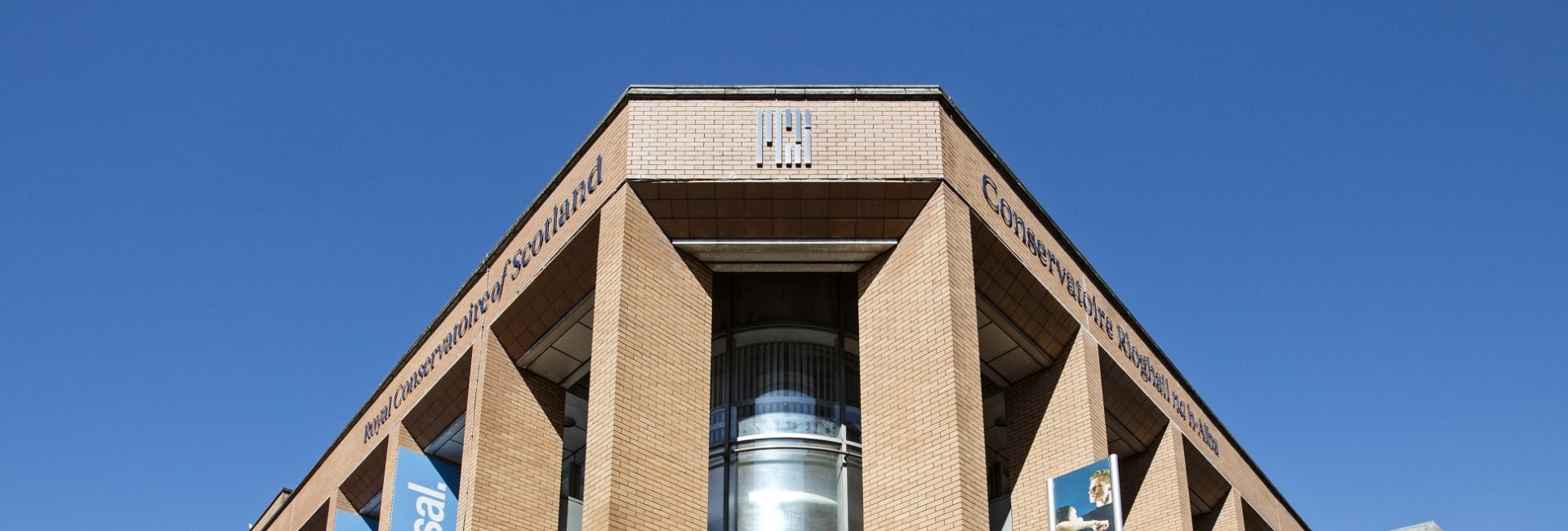Royal Conservatoire of Scotland: School of Music - Open Day
15 May 2025, 09:15
Glasgow, Lanarkshire


The MA in Historically Informed Performance Practice is offered by the Royal Conservatoire of Scotland in conjunction with the University of Glasgow. It will provide you with opportunities to develop insight and experience in historical performance practice of music, through a combination of vocal or instrumental study, performance-related academic research and an element of apprenticeship with professional ensembles.
The programme draws upon the staff expertise and facilities of both institutions, offering a unique opportunity to study alongside world-class performer-scholars within both the University and the Conservatoire environment.
Your study will involve attending seminar series, practical presentations and a practical portfolio. You will also be assessed by dissertation and through a performance recital.
As an accomplished performer, you will find that this programme will enhance your performance skills and knowledge with detailed, rigorous study of historical performance practice (particularly of music of the 17th and 18th centuries).
If you are aspiring to perform professionally or wishing to undertake historical research relating to performance practice, or both, this programme is designed for you.
Please note, the international deadline for this programme is the 1st December 2023, but we would encourage applicants to apply by the 2nd October 2023 to be guaranteed consideration for the first round of scholarship.
During the application and audition process, you must select which instrument(s) you wish to specialise in for the duration of your course. On this course, you can choose from the following options:
Only one specialism is studied. It may be possible to study a further instrument, but this will not contribute towards the qualification.
For all courses, you must select at least one specialism from the 'primary' list. For those studying primary/secondary pathways, two instruments may be selected – one from the 'primary' list and one from the 'secondary' list. Joint pathway students may select any two instruments from either list.
More information about what the course entails can be found on our website: https://www.rcs.ac.uk/postgraduate/masters-music-mmus/historically-informed-performance-practice/

Learn what it's like to study at Royal Conservatoire of Scotland. From key stats to campus highlights, open days, and more - find everything you need to know here.
This course is closed for the 2024 academic cycle. Please contact the provider or view the 2025 courses.
The following entry points are available for this course:
Currently around 20% of our students come from outside the UK. Between them, they represent over 60 different nationalities and add a rich diversity to the Conservatoire.
Candidates for both the MMus and MA are normally expected to hold a good honours (at least 2:2) degree, or its overseas equivalent, in a subject area relevant to the demands of the programme.
| Test | Grade | Additional details |
|---|---|---|
| IELTS (Academic) | 6 | Applicants who first language is not English will be required to provide evidence of proficiency in English. An IELTS score of 6.0 in each component (with no component below 5.5) is required. |
| Location | Fee | Year |
|---|---|---|
| Channel Islands | £9250* | Year 1 |
| Republic of Ireland | £9250* | Year 1 |
| England | £9250* | Year 1 |
| Northern Ireland | £9250* | Year 1 |
| Wales | £9250* | Year 1 |
| Scotland | £1820* | Year 1 |
| EU | £27968* | Year 1 |
| International | £27968* | Year 1 |
* This is a provisional fee and subject to change.
Tuition fee status depends on a number of criteria and varies according to where in the UK you will study. For further guidance on the criteria for home or overseas tuition fees, please refer to the UKCISA website.
For more information on fees and funding, please see our website - https://www.rcs.ac.uk/apply/finance/feesandfunding
The Royal Conservatoire is able to offer a number of entrance scholarships which are awarded as part of the audition/selection process on the basis of merit and financial need. Please see our website for more information - https://www.rcs.ac.uk/apply/finance/scholarships/.
100 Renfrew Street
Glasgow
G2 3DB
Visit our website Visit our course page
Email:admissions@rcs.ac.uk
Phone:0141 332 4101